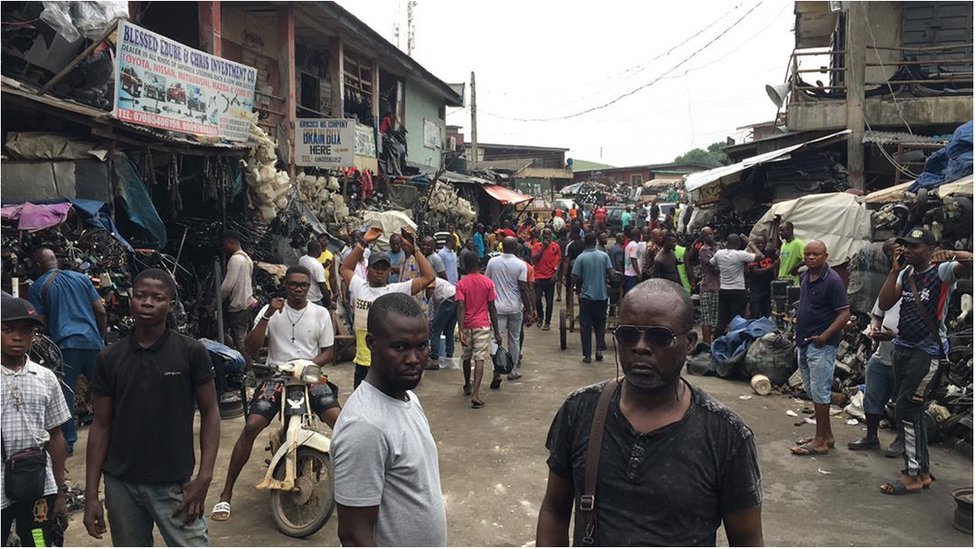
By Bakare Ogunleye
Nigeria’s auto insurance industry is under mounting pressure as soaring costs of vehicle spare parts replacement driven by persistent naira depreciation inflate claims expenses and challenge insurers’ ability to deliver value.
The worsening exchange rate has not only increased the financial burden on underwriters but also eroded consumer confidence in motor insurance policies amid rising premiums and delayed claims settlement in the country.
Insurance companies are saying the increasing cost of replacing damaged parts has led to a surge in claims settlements, particularly in comprehensive motor insurance, putting pressure on underwriting margins and policy pricing.
In Lagos, a visit to Ladipo Market on the weekend, one of West Africa’s largest automobile parts hubs, reveals just how steep the price increase has become.
Speaking to The Guardian, a spare parts dealer with over 12 years in the market, Emeka Eze, said, “We used to sell a Corolla bumper for N35,000 last year. Now, it’s N70,000 to N85,000 depending on the model.”
For him, it is not just the prices that have changed. Due to the forex situation, we are now struggling to obtain stock. That affects both repair timelines and insurance costs.
He noted that most of the parts are imported, and with the naira now exchanging at over N1,500 to the dollar, costs have doubled or tripled in some cases.
Vehicle owners are equally frustrated, saying underwriting firms are struggling to meet claims in real time or are adjusting settlement offers below market costs.
“I renewed my comprehensive insurance last year for N120,000. After my car was hit last month, the insurer said they could only approve N60,000 to fix a front fender that now costs almost N100,000 at Ladipo Market,” lamented Mrs. Tayo Ogunleye, a banker based in Surulere. “I am now considering switching to third-party cover. What’s the point if they can’t keep up with reality?
An underwriter who spoke on the development over the weekend confirmed that the rising costs are affecting how claims are processed. “We are seeing a significant increase in the average claim size,” said an underwriter at a leading composite insurance company who requested anonymity. “We are now reviewing premiums
for certain vehicle categories, especially high-value and imported models.”
The Nigeria Insurers Association (NIA) recently said that the motor insurance segment accounts for one of the highest claim ratios in the industry. As more Nigerians lean toward used cars (Tokunbo) due to high import duties on new cars, the demand for quality second-hand parts has also surged.
“Inflation, FX volatility, and global supply chain issues have converged to make vehicle repair more expensive and unpredictable,” said a senior executive at an underwriting firm. “This is forcing insurers to revise risk models and reassess pricing, but it also means we must engage more transparently with customers to manage expectations.”
Insurance brokers, meanwhile, warn that if the situation persists, many consumers may dump comprehensive coverage altogether, increasing risk exposure on Nigerian roads.
Experts are urging insurers to collaborate with parts dealers, mechanics, and OEM importers to create a more cost-efficient claims ecosystem. Others advocate for partial claims settlement flexibility, alternative parts coverage, and better policyholder education in the country.
As the naira remains volatile and inflation bites deeper, stakeholders say the motor insurance must quickly adapt or risk an erosion of public trust in insurance protection altogether.







